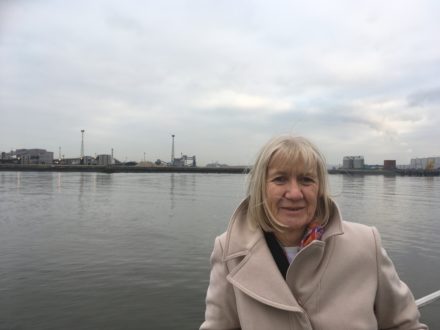

In 2015 the government decided it would allow more than 170 years of Teesside steel production to come to an end. Just 15 months later ministers launched an industrial strategy letting London tell the regions how to grow.
The surprise conversation to industrial planning, by a government seemingly reluctant to intervene when the call was loudest, stands in the Tees Valley as a bizarre example of “too little too late”.
My worry now is that as the government consults on this strategy, it is about to repeat the same mistake that left us with rising unemployment and our future at risk.
When Redcar’s steel blast furnace came under threat, and thousands of steel workers across the Tees Valley waited to see if their career would be brought to an end, our call for intervention was loud, our voice was clear. And yet it mattered nothing to those in London with the power to intervene.
As the council leader when SSI closed down, I was there to see how the workers, and their families, were ignored. We had a voice as strong as our local identity is proud, but the government was able to ignore it. Steel was our readymade industrial strategy, but because it was not on an official approved list somewhere in Westminster, it did not matter. We simply cannot afford to be in that position again.
Put bluntly, if our national industrial strategy is not one forged by local voices then the government should just be honest and call it a London strategy, since all it will do is play to a vision of the country as seen from the corridors of Whitehall and parliament.
The consultation now taking place on an industrial strategy comes at an interesting time, coinciding as it does with the devolution battle taking place in our cities and town this May.
While there is plenty of reference to the need to hear the voice of the soon to be elected metro mayors, there is nothing that says those opinions have to be acted on. Indeed, the consultation closes two weeks before the mayoral elections are even held.
Yes, there should be a process of bringing the ideas and priorities of different parts of the country together, and yes there should be a wider view taken as to how we combined those. But the voice of our cities and towns has to be heard, and I don’t mean as just another response to a government consultation which will be filed away and lost if it doesn’t match up to what London thinks is right.
In the Tees Valley, as elsewhere, we are getting on with the job of setting out where local people think major investment should go, in order to support job creation.
The government cannot preach the merits of devolution on one hand and centralise decision making with the other. Metro mayors, and the council leaders they work with, must be given the power to ensure the strategy reflects the strengths off their area, and not be held back if they follow a path local residents and businesses think is better.
Otherwise, just like with steel, London will again and again be able to pick the winners and losers and never have to live with the consequences.
Sue Jeffrey is Labour’s candidate for Tees Valley metro mayor.




More from LabourList
‘The hope that kills you’: Reflections from the final day in Gorton and Denton
MPs, union leaders and organisations react to ‘bruising’ Gorton and Denton result
A gory night for Labour